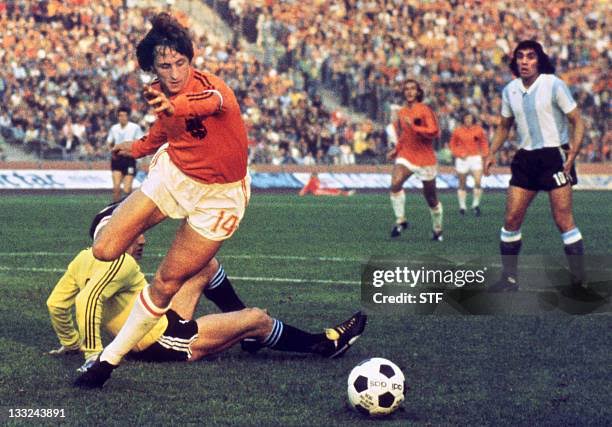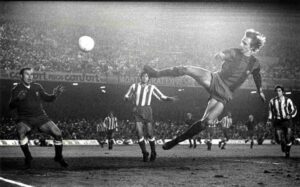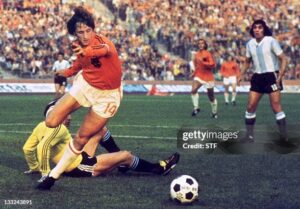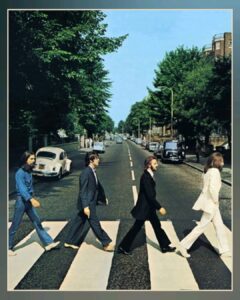
Redefining Technique in Football
Johan Cruyff’s Perspectiv


Johan Cruyff, the legendary Dutch footballer and coach, redefined the concept of technique in football, distinguishing it from mere ball juggling exercises. His perspective challenges the conventional notion that technical proficiency is synonymous with mastering flashy tricks or repetitive drills. According to Cruyff, true technique transcends these superficial displays of skill.
Cruyff famously stated, “Technique is not being able to juggle a ball 1,000 times. Anyone can do that by practicing. Then go and work in the circus.” This assertion underscores his belief that proficiency in football should not be reduced to circus-like acts of ball control. Rather, he emphasizes a more nuanced understanding of technique: the ability to execute precise, one-touch passes with impeccable timing and accuracy.
For Cruyff, technique in football revolves around the artistry of passing. It’s about delivering the ball swiftly and accurately to a teammate’s foot, ensuring that it arrives at the right moment and speed. This definition highlights the strategic and collaborative nature of the sport, where individual skill serves the collective goal of advancing play and creating scoring opportunities.
His philosophy reflects a deeper appreciation for the subtleties of football. While mastering ball control through repetition is important, it is merely a foundation. True technical excellence, according to Cruyff, lies in the capacity to read the game, anticipate movements, and execute decisions swiftly and precisely. It’s about understanding when to pass, how to pass, and to whom, all while under the pressure of real-time competition.
Moreover, Cruyff’s emphasis on one-touch passing embodies efficiency and fluidity in football. By minimizing unnecessary touches on the ball, players not only maintain possession but also accelerate the pace of play. This style of play not only enhances team dynamics but also requires a high level of technical proficiency and mental agility.
Cruyff’s influence extends beyond his playing days into coaching, where he continued to advocate for a style of football characterized by intelligent, skillful play. His coaching philosophy emphasized developing players who could not only master individual techniques but also integrate seamlessly into a cohesive team unit. This holistic approach to technique underscores the importance of teamwork, communication, and spatial awareness on the football pitch.
In essence, Johan Cruyff’s definition of technique challenges footballers to aspire to more than mechanical skill. It encourages them to cultivate a deeper understanding of the game’s intricacies and to elevate their contributions through precise, purposeful actions. By prioritizing intelligent passing over showmanship, Cruyff’s legacy endures as a beacon for aspiring footballers and coaches alike, emphasizing the timeless value of technical excellence in achieving success on the pitch.





